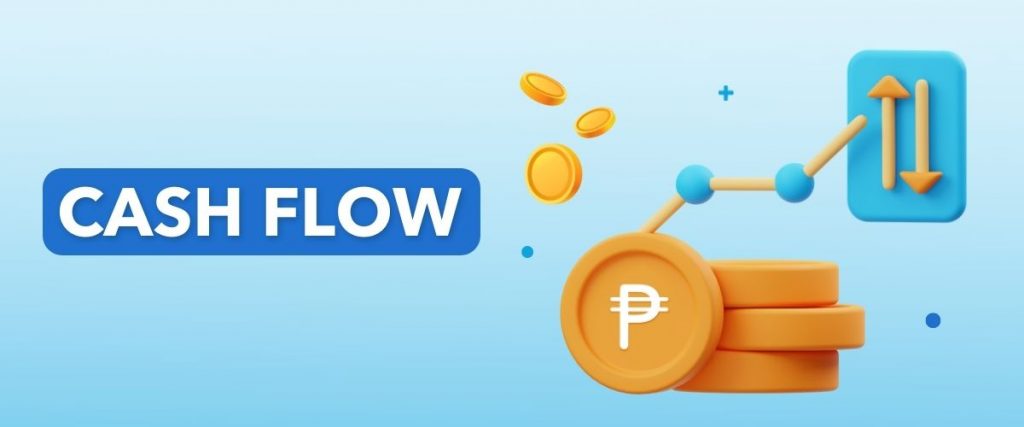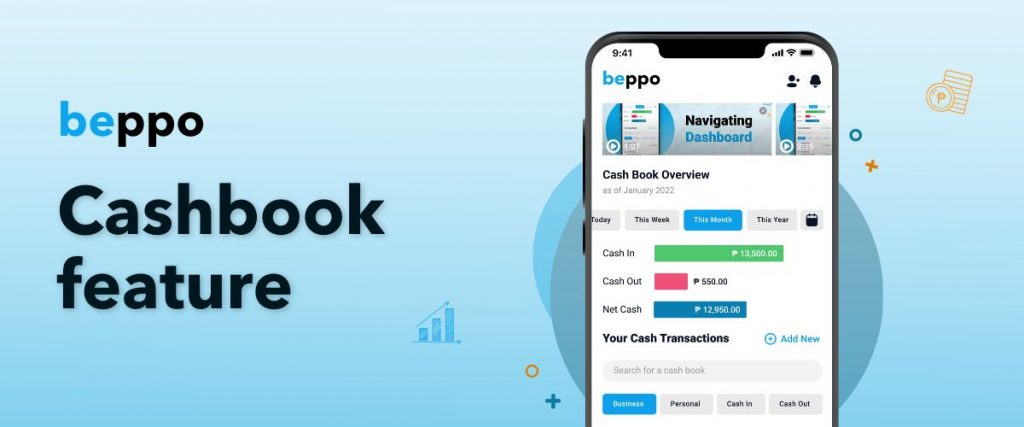There’s no better feeling than having the liberty to set your own work time, how long you work, and who you want to work with. These are just some of the positive things you can relish while working as a freelancer. In your freelance business, you are in charge and responsible for everything, including keeping a positive cash flow.
Aside from profit or revenue, cash flow plays a pivotal role in determining the overall financial health of your freelancing business. You must maintain a positive cash flow level to sustain long-term growth and profitability. In other words, more money should be coming in than going out.
This is quite difficult for many self-employed individuals. Unlike those who work full-time in a traditional 9-5 job, freelancers don’t have a steady income or regular paycheck.
They heavily rely on renewing contracts and recurring projects to survive in the business. Hence, there’s inconsistency in work and cash flow as clients tend to come and go.
While this can be challenging, there are ways to ensure adequate cash flow and mitigate other financial risks. But before anything else, you have to get a clearer understanding first of cash flow and its importance for freelancers like you to navigate your finances with confidence.
[lwptoc]What exactly is cash flow and why does it matter?

Simply put, cash flow is the net amount of cash and other liquid assets you spend or earn for a specific duration. It is called cash inflow if the money goes into your business. That amount could be from sales, investments, or financing.
On the other hand, cash outflow is the money that leaves the business and could be used to pay debts, liabilities, operating costs, and other business expenses.
There are also 3 types of cash flow that business owners or freelancers need to track:
3 Types Of Cash Flow
-
Operating cash flow
It refers to the cash generated from your business’s day-to-day activities. It serves as a measure of whether your business can generate sufficient cash flow to maintain and expand its operations.
-
Investing cash flow
It is the cash spent on investment-related activities. It includes all cash transactions in acquiring intangible and tangible assets like shares, stocks, and properties.
-
Financing cash flow
The cash net related to raising capital or funding your business. This can be in the form of issuing debt, equity, and paying dividends.
As a freelancer, staying on top of your cash flow is essential to giving you a complete picture of your cash footprint, including your other financial resources and expenses. With this, you can plan and come up with effective efforts that could help you bring in as much money as possible while minimizing your spending.
How to manage and optimize your cash flow as a Freelancer?
-
Build a cash flow plan and forecast
Whether you work solo, with a team, or as an agency, it is vital to create your cash flow plan and forecast when starting a freelancing career, Having a solid cash flow plan enables you to track the expected cash movement within your business, ensuring that you have enough cash balance to cover any potential financial blunders in the future.
Cash flow planning and forecasting are the keys to lowering financial stress. It helps freelancers like you easily formulate informed decisions and scale your business without worrying about your next bills.
-
Come up with a realistic budget
One of the drawbacks of freelancing is its irregular income. Freelancers have a unique financial situation, which makes their expenses difficult to ascertain. That’s why it is imperative to create and stick to a realistic budget to steer clear of serious financial hurdles that can compromise the business.
To have a better grasp of your finances, make sure to keep track of your upcoming and confirmed expenditures, calculate your estimated income, plan your taxes, build your savings, and allot future funds.
-
Separate your business and personal accounts
Most freelancers don’t realize the danger that entails when business and personal finances or records are mixed. Not only does it affect your overall financial health, but it also risks losing legitimate tax deductions. Letting these two intermingle makes it difficult to identify which are considered business costs, and which are personal ones.
Make it a habit to deposit your money into its respective accounts. Remember, having separate accounts for your personal and business records makes the process of tracking cash flow and sharing information easier, especially when facing an audit or legal issue.
-
Ensure your clients are paying right and on time
Nothing is worse than doing tons of work for a client only to experience delayed payment issues. This situation is not so foreign to many freelancers. Oftentimes, freelancers fail to properly discuss and emphasize the payment terms in their agreement.
So before securing a project, make sure you have a signed contract with your client that highlights your deliverables, service duration, and, of course, your desired payment schedule.
Most importantly, don’t forget to send invoices to your clients on time to remind them of their payment obligations and that payments must be scheduled. Doing so can have a positive impact on your cash flow.
-
Re-evaluate your fees/rates
If you feel that bringing in money has become an uphill task and that you believe that you are working more but earning less, then maybe it’s high time to reevaluate and increase your rates.
Raising your service rates can be scary and daunting, as you might lose your existing and potential clients. However, you should stop undervaluing what you can offer and start charging what you’re worth. If you know that you have completed more projects, acquired more experience, and gained a lot of good feedback, it’s fair enough to implement a well-justified price change.
Also, considering the inflation nowadays, it is reasonable to increase your rates.
-
Create passive income
Generally, passive income doesn’t allow you to do any active work. It can generate income with little to no effort and can make money while you sleep, allowing you to focus more on your freelancing business and other important matters.
There’s a wide array of investments you can choose from. It can be rental properties, stocks, forex, crypto, affiliate marketing through social media, etc. You can even monetize your simple hobbies if you like! Who knows, it could turn out to be a thriving business.
As a freelancer, having a passive income improves your cash flow and increases your financial stability and security. It provides additional streams of income when everything goes south.
-
Streamline cash management with automation
As a freelancer, you’re busy juggling multiple projects and beating deadlines, which leaves you little time to track your finances. Thankfully, automated cash management apps, tools, and software are now everywhere and can help streamline your cash management process.
It also removes manual tasks, thus saving time, effort, and resources. Freelancers can focus more on their businesses without worrying about errors, disputes, or delayed access to cash flow data.
What is Beppo and how can it help freelancers with cash management?

Beppo is an all-in-one financial management mobile app specifically built for every freelancer to help them efficiently manage finances, send e-invoices and receive payments from clients, and view-file-pay taxes, all at their fingertips.
One of its features, Cashbook, enables freelancers to track and manage all accounts payable and receivable easily. Users can create cash transactions that they can label as business or personal and categorize according to income or expenses.
The feature also has a visual representation through its graphs and charts to better summarize and present the financial data in a more simplified way.
Get first-hand experience with Beppo’s Cashbook feature.
To sum it up…
Cash flow is the net amount of cash and other liquid assets you spend or earn for a specific duration. Aside from profit or revenue, cash flow plays a pivotal role in determining the overall financial health of your freelancing business.
This is quite challenging for many self-employed individuals. Unlike those who work full-time in a traditional 9–5 job, freelancers don’t have a steady income or regular paycheck. They heavily rely on renewing contracts and recurring projects to survive in the business. Hence, there’s inconsistency in work and cash flow as clients tend to come and go.
As a freelancer, it is vital to stay on top of your cash flow to get a complete picture of your cash footprint, including financial resources and expenses. This can help you plan and devise effective efforts to bring in as much money as possible while minimizing your spending.
How to manage and optimize your cash flow as a freelancer
- Build a cash flow plan and forecast
- Come up with a realistic budget
- Separate your business and personal accounts
- Ensure your clients are paying right and on time
- Re-evaluate your fees/rates
- Create passive income
- Streamline cash management with automation
Beppo’s Cashbook feature enables freelancers to track and manage all accounts payable and receivable easily. Users can create cash transactions that they can label as business or personal and categorize according to income or expenses.
Want to give it a try? Connect with Beppo. Or visit https://beppo.com to know more.

